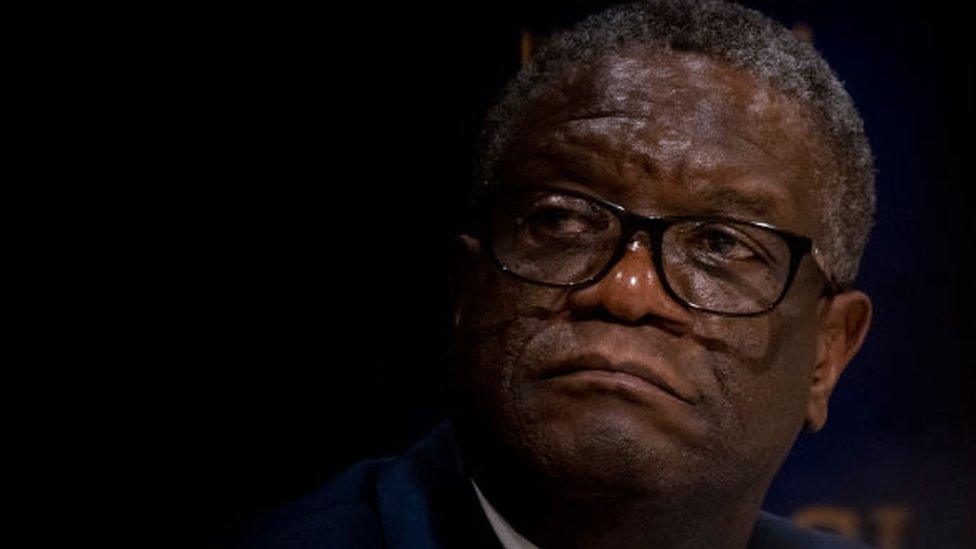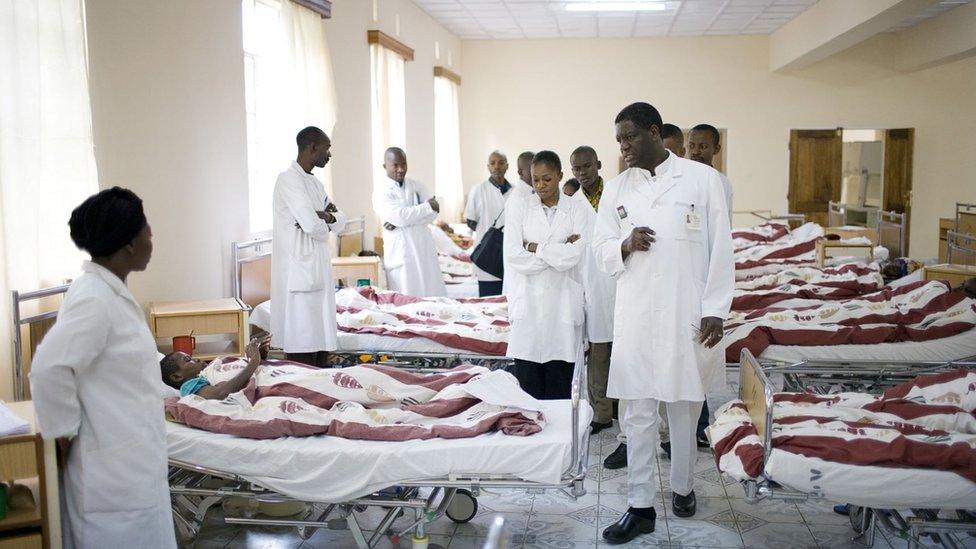Denis Mukwege: UN guards DR Congo Nobel laureate after death threats
- Published

Dr Mukwege has been outspoken on a number of issues related to violence
Nobel peace laureate Denis Mukwege has been placed under the guard of United Nations security forces in the Democratic Republic of Congo after death threats against him.
The gynaecologist and his colleagues have treated tens of thousands of rape victims and he went on to share the Nobel Prize in 2018.
Dr Mukwege said he received death threats after condemning a massacre.
It prompted hundreds of people to protest, calling for his protection.
Eastern DR Congo, where Dr Mukwege is based, has been wracked by conflict for more than 25 years, fuelled by the area's rich mineral resource.
The UN has a huge peacekeeping mission in the region but numerous armed groups still operate and carry out atrocities such as mass killings and rape.
Dr Mukwege is based near the town of Bukavu at the Panzi hospital, which treats women who have been raped.

Dr Mukwege has been living at Panzi hospital since the 2012 attempt on his life
UN police officers had been stationed at the hospital but left in May because of a coronavirus outbreak among the peacekeepers.

Who might be behind the threats?
By Gaïus Kowene, BBC News, Kinshasa
Overtly outspoken about human rights violations, especially killings and rapes by local or foreign armed groups, Dr Mukwege has been targeted in the past after pointing the finger of responsibility at DR Congo's neighbours like Rwanda and Uganda.
Threats against his life go back to October 2012 when his security guard died while facing gunmen who tried to shoot the Nobel prize laureate.
It is not clear who was behind this assassination attempt.
Rights groups called for an investigation and reinforced security for Dr Mukwege.
The threats resurfaced a few months ago after Dr Mukwege started denouncing killings in eastern DR Congo, external and demanding justice for human rights violations recorded in the UN's mapping report.
This report was written by the UN Office of High Commissioner for Human Rights that talked to 1,200 witness and collected 1,500 documents to map human rights violations against civilians committed in the country between 1993 and 2003.
This is a period covers between the time Rwandan refugees fled the 1994 genocide and poured into Zaire, as DR Congo was then known, up to 2003, the end of the second Congo War.
During this period Rwanda and Uganda had troops in DR Congo and were accused of crimes against humanity.
Demanding justice for these crimes means re-examining the responsibility of these neighbours and holding them accountable.
Rwanda's Gen James Kabarebe, who led operations in DR Congo, recently categorized Dr Mukwege as someone who had been manipulated by enemies of Rwanda to spread propaganda tarnishing the country's image.
Currently, there is no evidence in the public domain linking this statement to the threats that Dr Mukwege says he has received and Gen Kabarebe has not commented.
Congolese President Felix Tshisekedi has demanded an investigation into the threats, while Dr Mukwege has received a wave of international support.
- Published19 February 2013
